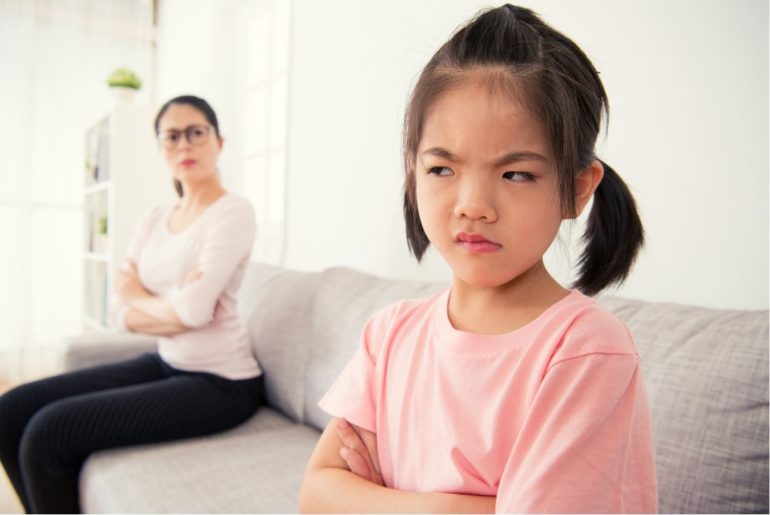We all want our kids to think for themselves and express their opinions, but getting them to do that politely and respectfully is key. That feels especially true now, when our kids might see or hear a lot of adults arguing on Facebook, TV, or at home about politics, social distancing rules, the economy, and all sorts of other topics—and not always in a healthy way.
Amidst all of the turmoil at home and across the country, there’s no better time to show kids that it’s okay to disagree with people, but it’s also important to listen respectfully to others’ opinions. Plus, parents of kids of every age, from headstrong toddlers to opinionated teens, can benefit when kids learn more respectful ways to disagree!
Here are some useful phrases for starting conversations with kids about how to disagree more politely. Parents can also use some of these phrases in their own conversations, with kids and others, to model great ways to hear others’ opinions (and make it more likely others will listen to our thoughts, too).
“What do you think?”
Asking this question shows that you value your child’s opinion, plus it signals that you want to discuss the matter calmly instead of having a yelling match about it.
“Do you want a turn to speak?”
Using this phrase helps your kids learn how to listen and wait for an appropriate time to talk, while also demonstrating that you do actually want to hear what they have to say. Telling them when you’re finished talking helps teach them that if they listen, rather than interrupt, they’ll still get a chance to speak their minds.
“Let’s play pretend.”
You can use role playing as a way to illustrate what people can say when they are having a conflict. Come up with an easy-to-understand scenario and try out different ways to respond, including ideas from your child.
“It’s fine to disagree, but how could you say it in a different way?”
Remind your child of the need to use respectful language with other people, and see if they can come up with a more polite response on their own. If they really don’t know what to say, give them a few examples and have them practice. It can be as simple as, “I have a different opinion about that.”
“Remember when…”
Bring up a time when they solved a conflict well (waited their turn with a sibling’s toy), or had a respectful conversation (asked for something politely and then listened to the answer). This can help build confidence in their own abilities to respectfully disagree.
“Sometimes I feel that way too.”
Kids need to know that adults get angry too, and can have a hard time knowing how to respond calmly. Make sure they know that it’s more than okay to feel angry, scared, or confused—and that it’s something that everyone is learning to deal with.
“I see you feel very strongly about that!”
Children need to feel validated and heard, so sometimes just acknowledging how strongly they feel helps diffuse the situation enough that you can begin to have a calmer discussion.
“I’m sorry.”
If you do lose control and snap at your child or someone else during a disagreement, it’s important to admit your mistake with a genuine apology afterwards. Modeling this kind of behavior for your child shows that you are working to improve, and helps them realize that it’s possible for them to improve as well.
Learning to listen patiently and respectfully during a disagreement can take practice! Swipe through the carousel below to learn how the Peace Rose hack can help you kids build good habits.







